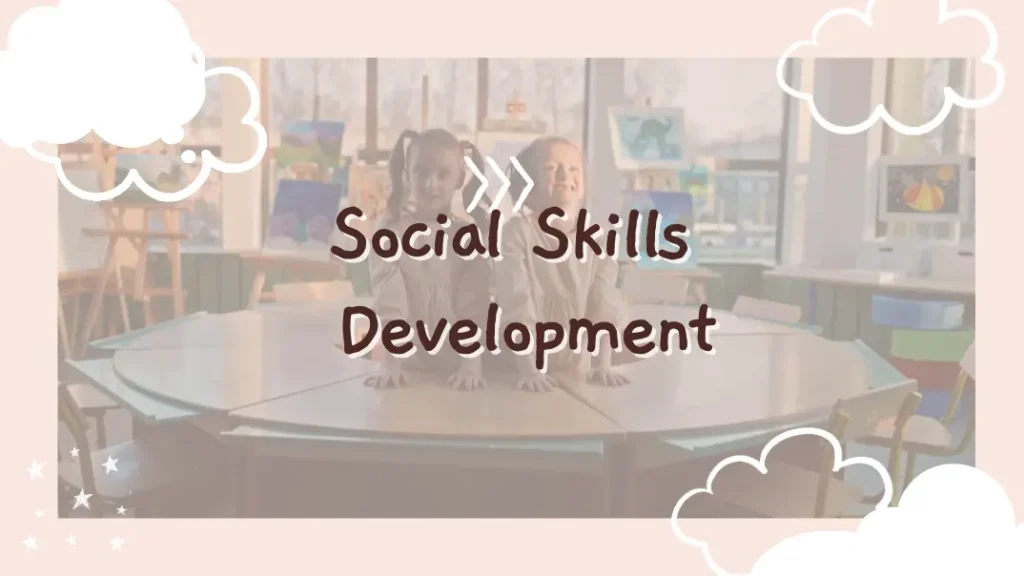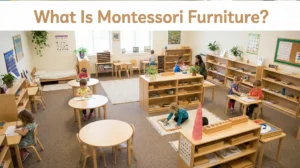Imagine your child on the first day of preschool. Some children quickly join group games, while yours hesitates, unsure how to approach others. Moments like this raise questions about how children build confidence and friendships.
These everyday situations highlight the importance of social skills development. Social skills are more than just good manners; they form the foundation for communication, teamwork, and emotional growth. With the right guidance, children can learn to express themselves clearly, share, listen, and collaborate. Developing social skills ensures they feel confident in the classroom, on the playground, and beyond.
In this guide, we’ll explore the stages of Social Skills Development, common challenges children face, and practical strategies parents and teachers can use to nurture strong social connections.
What is the Development of Social Skills?
Social skills development is how children learn to interact, communicate, and form relationships with others. This journey starts early in life with simple non-verbal communication, like eye contact and body language. As children grow, they gradually develop more complex skills, such as understanding social cues, listening, and resolving conflicts. Effective social skills development is fundamental for emotional intelligence, helping children navigate friendships, family dynamics, and future workplace relationships.
The early years are a critical time in this development. Babies start by mimicking their caregivers’ facial expressions, moving on to babbling and cooing to attract attention. As they age, their ability to understand the emotional states of others grows, and they start using words and gestures to express themselves more clearly. These early stages lay the foundation for future social interactions, including the ability to manage emotions and engage in group activities.
The process is gradual and often challenging for young children, but with the right guidance, children can learn to master these skills. Social beings rely heavily on these skills for building positive relationships, managing conflicts, and thriving in school settings. When developing social skills is nurtured properly, children become more confident, emotionally intelligent, and socially adept.
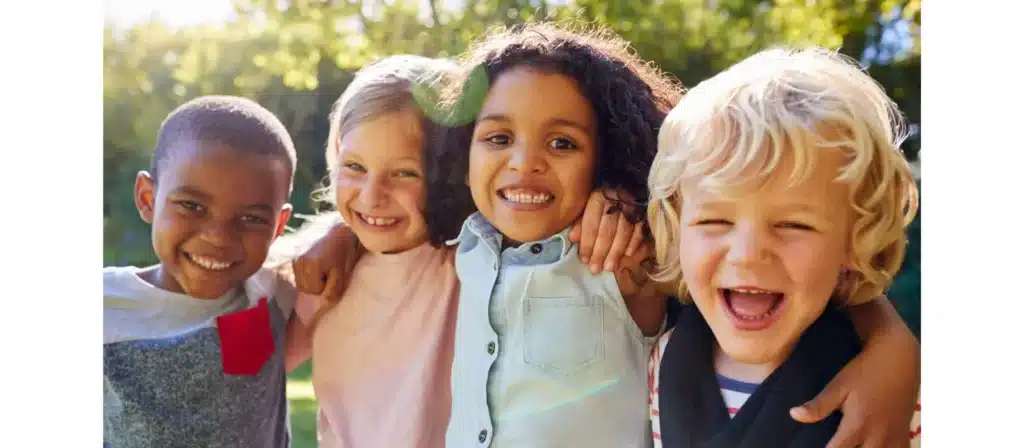
Why Are Social Skills Important?
Social skills are crucial for children’s development and academic and personal success. Children with strong social skills are more likely to succeed in school, develop lasting friendships, and be emotionally resilient in the face of challenges. Social skills allow children to communicate their needs, express their feelings, and understand others’ perspectives. As they grow, these skills enable them to build relationships, resolve conflicts, and collaborate in team settings.
Without good social skills, children may face difficulties interacting with their peers. These difficulties can lead to frustration, loneliness, and even behavioral issues. Children who struggle socially often find it harder to concentrate in class and may feel socially isolated, hindering their emotional and academic growth.
On the other hand, when children master these skills early on, they are better prepared for the challenges they will face in life. From making friends in kindergarten to collaborating with classmates in high school, social skills help children build meaningful connections and navigate the complexities of the world around them. This is why social-emotional development skills are as important as academic learning for a child’s success.
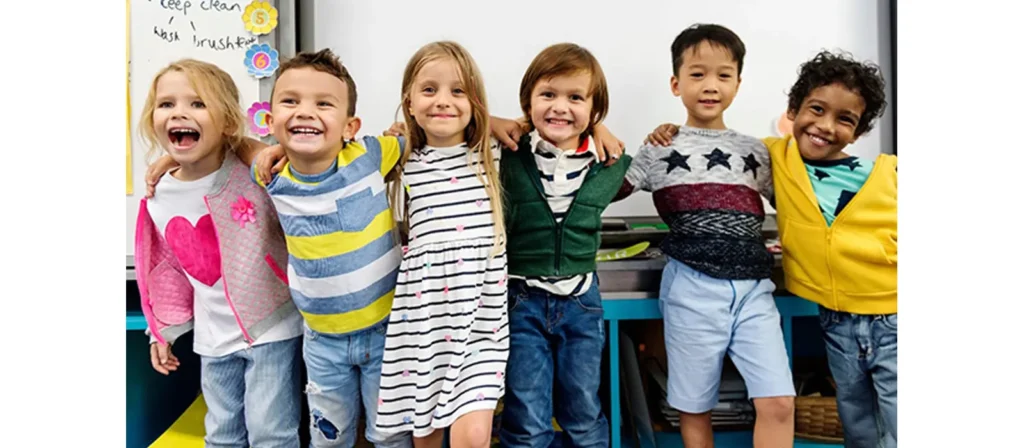
Building the Foundations of Social Skills Development
Social skills development begins early and continues to evolve as children grow. The foundation of this development involves several key areas that must be nurtured for children to master more complex social skills later on. Here’s a closer look at the building blocks of social skills development:
- Attention and Concentration
The ability to focus attention is the first step in effective social communication. Without attention, children may miss social cues or misunderstand the emotions of others. Attention spans improve in preschool and early school as children engage in structured activities. Practicing sustained focus during conversations, group activities, and playtime is crucial for fostering strong social development skills. - Understanding Language
Before children can effectively communicate their thoughts and feelings, they must first learn to understand language. This includes recognizing tone, body language, and non-verbal cues. Developing language comprehension allows children to grasp the emotions and intentions of others, setting the stage for empathy and appropriate responses. - Expressive Language
Expressing one’s thoughts, desires, and feelings is a fundamental social development skill. Early on, children begin using simple words to express basic needs. They can articulate complex thoughts, ask for help, and engage in conversations as they grow. By practicing verbal expression, children learn to assert themselves while respecting others’ speaking turns. - Play Skills
Preschool Play is a vital part of childhood and plays a significant role in developing social skills. Children learn to share, cooperate, and engage in group activities through play. Whether through cooperative games or imaginative play, children practice turn-taking, negotiation, and problem-solving skills. Developing social skills through play helps children practice these skills in an enjoyable, low-pressure environment. - Pre-Language Skills
Before children speak fluently, they develop pre-language skills such as non-verbal communication, imitation, and gesture use. These skills are foundational for later verbal communication and serve as a precursor to more advanced social interactions. - Self-Regulation
Self-regulation refers to managing one’s emotions and behavior in different situations. Children who struggle with self-regulation may find it difficult to maintain focus, control impulses, or interact appropriately with peers. Teaching children strategies like deep breathing, counting, and mindfulness can help them manage their emotions and behave socially appropriately. - Executive Function
Executive function includes cognitive processes such as planning, problem-solving, and flexible thinking. These skills help children navigate social situations by allowing them to plan their responses, think ahead, and adjust their behavior when necessary. For example, a child with good executive function can recognize when it’s time to stop talking and listen or when to change strategies during a group activity.
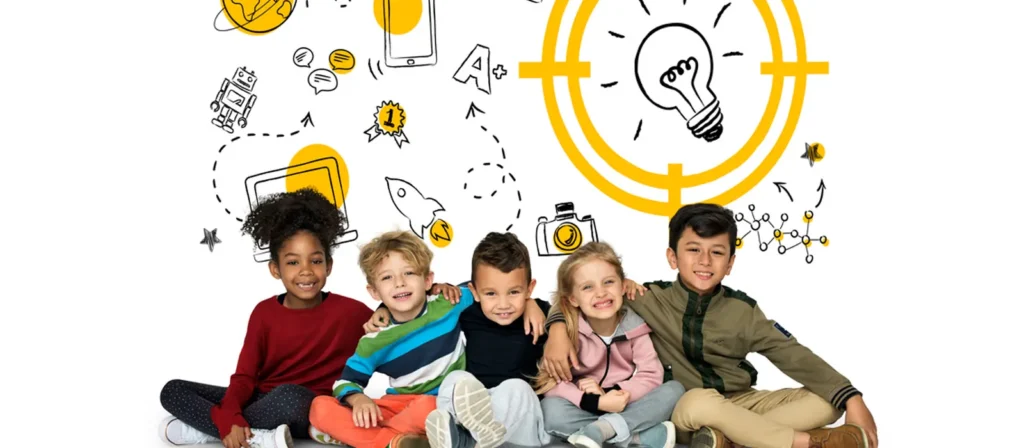
How to Improve Social Skills?
Improving social skills in children is an ongoing process that involves structured learning, play, and social interactions. Here are some practical methods to help enhance their ability to interact with others and build meaningful relationships.
Play with Your Child
Playing with your child is one of the most effective methods to enhance social skill development. Through play, children experience firsthand how to take turns, cooperate with oth`ers, and express their feelings appropriately. Whether through pretend play, board games, or cooperative games, these activities offer natural settings where children can practice sharing, listening, and following directions. Regular interaction with caregivers helps children understand social dynamics in a comfortable and familiar environment.
Pay Attention to Emotions
Emotion recognition and regulation are crucial aspects of social skills development. Children need to learn how to identify their feelings and the emotions of others. Parents can foster emotional awareness by discussing emotions during everyday activities. For instance, when a child experiences frustration, caregivers can model strategies for calming down and discussing how the other person might feel. This helps children develop social-emotional skills like empathy, which will later aid them in complex social interactions.
Social Stories
Social stories are structured narratives that help children understand social situations and expectations. These stories typically explain how to handle specific situations, such as making friends, dealing with disappointment, or taking turns. Social stories are an excellent tool to support developing social skills in preschoolers, as they provide a concrete framework for abstract social concepts. Repeated exposure to these stories can boost a child’s confidence in handling various social scenarios.
Social Skills Groups
Joining social skills groups is an ideal method to support developing social skills for autism or assist children struggling with social interaction. These groups often involve structured activities that promote teamwork, conversation, and problem-solving. They provide a safe space where children can practice social behaviors with peers in a controlled environment. Children in these groups also learn important lessons about conflict resolution, listening, and respecting boundaries.
Children’s Social Skills Development Milestones
Understanding the typical milestones of social skills development helps parents and educators track a child’s progress. While every child is unique, general age-based expectations guide social development.
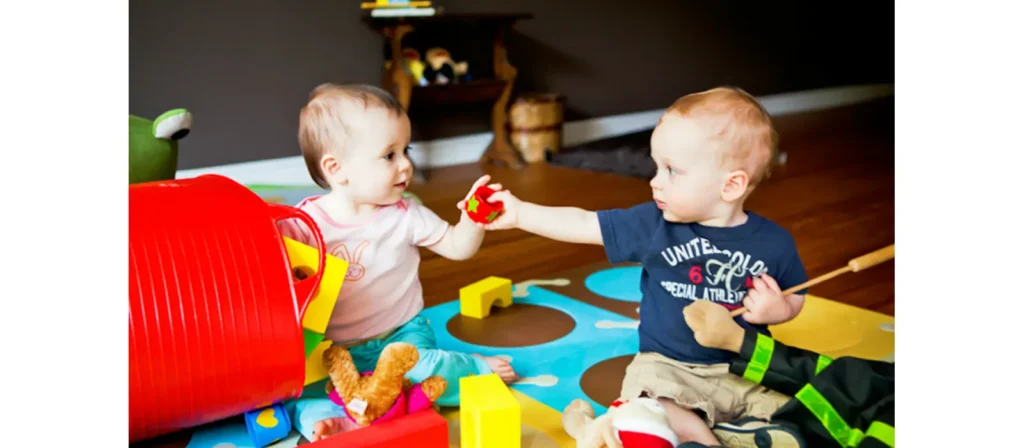
Infants and Toddlers
Social skills emerge very early, even in the first few months of life. Here’s a breakdown of key milestones for this stage:
- Birth to 2 Months:
Babies establish early social connections with caregivers at this stage through eye contact and facial expressions. They respond to voices and begin to smile in response to interactions. - 3 Months to 6 Months:
Infants start developing early communication skills, such as cooing and babbling. At this point, they begin to show more interest in socializing and can recognize familiar faces. They start to bond with caregivers through mutual gaze and interactive vocalizations. - 7 Months to 12 Months:
By this stage, babies start responding to their names and may even show signs of separation anxiety when apart from their primary caregivers. They engage in simple gestures, such as waving and reaching out, signaling the beginning of interactive communication.
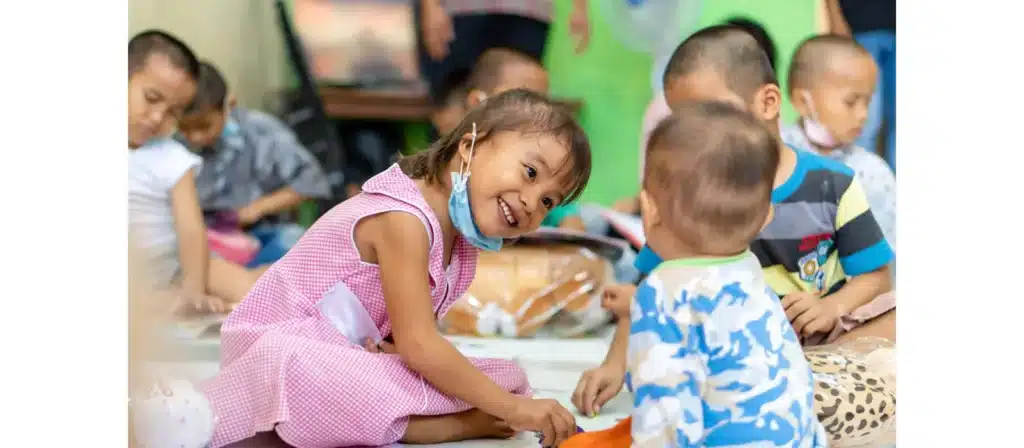
Toddlers and Preschoolers
Children begin developing more sophisticated social skills during the toddler and preschool years.
- 18 Months to 2 Years:
At this age, toddlers begin to engage in parallel play, where they play alongside other children but don’t yet interact directly. They may start showing interest in other children’s toys, which lays the foundation for later social interactions like sharing. - 3 to 4 Years:
Children in this age range begin participating in simple group activities and start learning cooperation basics. They begin to grasp the concepts of turn-taking and sharing and may show signs of empathy by comforting others when they are upset.
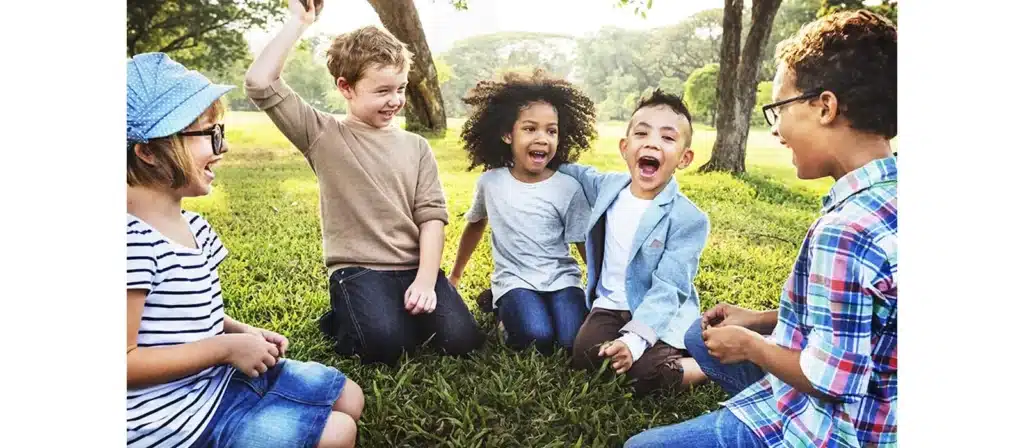
Elementary School Age
As children reach elementary school age, their social skills become more refined. They begin forming stronger friendships and understanding more complex social cues.
- 5 to 6 Years:
Children understand the idea of fairness at this stage and begin to manage their emotions better in social settings. They develop the ability to resolve conflicts and play more complex games with friends, including those with rules. - 7 to 8 Years:
Children’s ability to collaborate in groups improves. They enjoy group projects and understand how to contribute to a shared goal. They also start recognizing the importance of empathy and can express their emotions more nuancedly. - 9 to 10 Years:
Children have more refined conversational skills by this age and can participate in discussions with peers. They also develop deeper friendships and understand the importance of respecting personal boundaries and individual differences.
Delayed Social Skills Development
Not all children reach social milestones at the same time. For some, delayed social skills development can cause challenges in interacting with others. If your child struggles with communication, making friends, or expressing emotions appropriately, it’s essential to identify and address the issue early on.
Understanding Delayed Social Skills Development
Delayed social skills can be a sign of developmental disorders, such as autism spectrum disorder (ASD) or other conditions that affect social and emotional development. Developing social skills in autism requires targeted therapies and interventions to improve communication, empathy, and emotional regulation. For other children, delayed social skills might simply reflect a need for more practice and exposure to social situations.
Signs of delayed social skills development may include
- Difficulty making friends or maintaining relationships.
- Struggling with basic social norms, such as greeting others or sharing toys.
- Difficulty understanding and managing emotions.
- Trouble with conflict resolution and following group activities.
Interventions for Delayed Social Skills Development
For children with delayed social skills development, early intervention is key. Social skills groups, therapy, and family involvement can significantly improve a child’s ability to develop social-emotional skills. Social skills development activities, such as role-playing, modeling appropriate behavior, and creating opportunities for social engagement, can help children practice key social skills like sharing, listening, and conflict resolution.
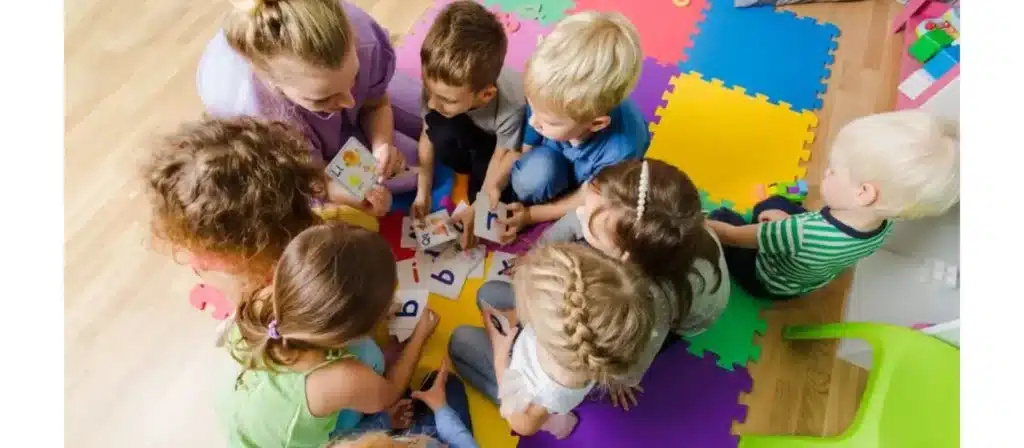
Activities that Help Develop Social Skills
Children need to practice social skills in real-life situations, and one of the best ways to facilitate this is through engaging activities. These activities foster cooperation and teach children to navigate complex social interactions like sharing, taking turns, and expressing emotions. Below are some of the most effective activities for developing social skills in preschoolers.
1. Role-Playing Games
Role-playing games are powerful tools for developing social skills. Through role-play, children can practice responding to different social situations they may encounter daily. For example, you can create a scenario where your child pretends to be at a store or a restaurant, practice saying “please” and “thank you,” ask for help, and follow basic social etiquette.
Role-playing also helps children learn empathy as they put themselves in the shoes of others. It encourages creative thinking and emotional understanding, fundamental aspects of social-emotional development skills.
2. Board Games and Group Play
Board games are excellent for teaching children to follow rules, share resources, and take turns—key elements of social skills development. Games like “Candy Land” or “Chutes and Ladders” promote interaction and communication while reinforcing important lessons like patience and fair play. Group play, where children participate in collaborative tasks like building a puzzle or playing a team sport, also helps them develop cooperation and negotiation skills.
By providing opportunities for healthy competition, children learn how to handle winning and losing, which are essential life skills in social interactions. Moreover, group play builds a sense of camaraderie, helping children learn to interact with peers positively.
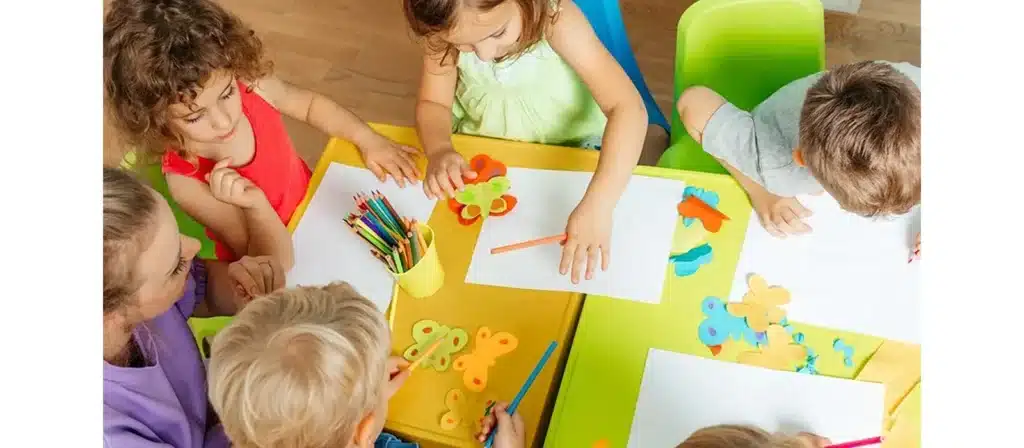
3. Art and Craft Activities
Art activities are a great way to foster communication and creativity while developing fine motor skills. Activities such as group painting or crafting allow children to express themselves non-verbally and collaboratively interact with others. These activities help children learn to share tools and materials, work together toward a common goal, and discuss their ideas openly.
4. Outdoor Play and Team Sports
Outdoor play is crucial for the overall development of social skills. Whether playing in a park or participating in team sports, outdoor activities help children learn how to work in a group setting. Team sports, like soccer or basketball, teach children the importance of cooperation, following instructions, and resolving conflicts fairly and respectfully.
Moreover, outdoor activities encourage children to communicate and interact with peers in natural settings, enhancing their social skills in real-life situations. The physical aspect of play also reduces stress and anxiety, helping children develop emotional resilience.
5. Music and Movement
Incorporating music and movement into learning is another great way to develop social skills. Activities such as group singing, dancing, or playing musical instruments help children practice coordination, listening, and turn-taking. These activities also promote creativity and encourage social bonding as children work together to create something harmonious.
Music is universally engaging and can break down barriers in communication, especially for children who may struggle with verbal communication. It provides an outlet for expression and can be a great way to build connections with others.
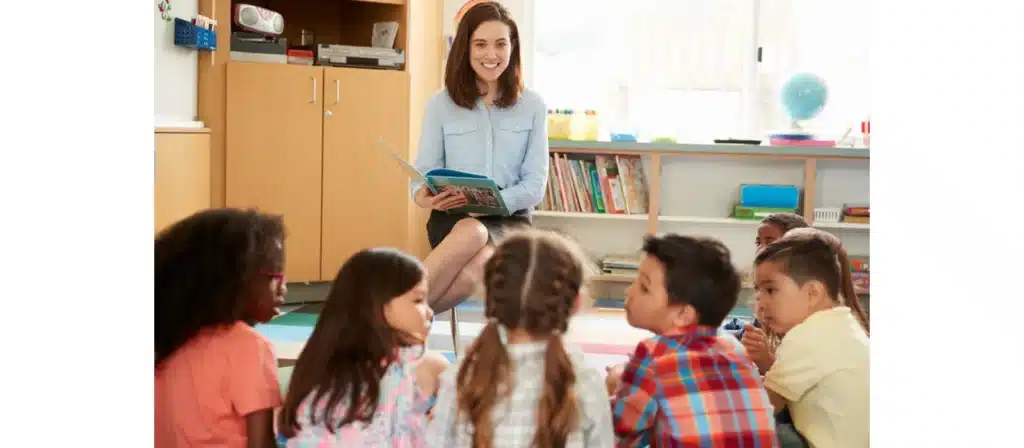
6. Storytelling and Social Stories
Social stories are invaluable for children with delayed or developing social skills. These stories are simple narratives that describe specific social situations and the appropriate behaviors to exhibit. For example, a social story might explain how to ask a friend to play or deal with disappointment if things don’t go as expected. These stories help children visualize social interactions, making understanding complex concepts like sharing, taking turns, and managing emotions easier. Stories can be personalized to reflect the child’s experiences, making them even more effective.
7. Social Skills Worksheets and Cards
There are many printable resources available, such as social skills worksheets and flashcards, that can help children learn and reinforce important social skills. These worksheets might include scenarios children can complete by writing or drawing how they would act in different social situations, such as when they need to share or apologize.
How Can Families Promote Social Skills Development in Preschoolers?
Preschoolers are at a crucial stage in their social skills development. During these years, children refine their ability to communicate, share, and understand emotions. Families play a central role in guiding children through this process. Here are some strategies for parents to promote social skills development for preschoolers.
Model Positive Social Behaviors
Children learn by example, and one of the best ways to promote social skills is to model positive behaviors. Demonstrate how to greet people, listen attentively, share with others, and show kindness. When you interact with your child or others, be mindful of your tone, body language, and words, as children are keen observers and will mimic what they see.
Provide Opportunities for Social Interaction
Preschoolers need plenty of opportunities to interact with others in various settings. Arrange playdates with peers, attend community events, or simply spend time in public places where children can observe and interact with others. Group activities like library story hours or children’s workshops also allow children to practice social skills in a structured environment.
These interactions help preschoolers build confidence in social situations as they learn to navigate social norms and connect with others.
Praise and Reinforce Social Behavior
Reinforce positive social behaviors by offering praise and encouragement when your child demonstrates kindness, empathy, or cooperation. Positive reinforcement encourages children to repeat these behaviors and boosts their self-esteem. For example, when your child shares a toy or helps clean up, acknowledge their efforts with praise, saying something like, “Great job sharing with your friend!”
Strategies to Help Students with Autism Learn Social Skills
Children with autism often face challenges in social skills development. Social interactions can be overwhelming, and understanding social cues may be difficult. However, these children can develop the necessary skills to engage with others with the right strategies. Here are effective approaches for developing social skills in autism.
Use Structured Social Skills Training
Structured social skills training provides autistic children with a systematic approach to learning social norms and behaviors. This can include practicing specific interactions, like initiating a conversation, maintaining eye contact, or understanding personal space. Social skills groups, led by trained professionals, can offer a safe space for children to practice these behaviors in a controlled environment.
Incorporate Visual Supports
Many children with autism are visual learners, so visual supports are crucial for teaching social skills. Social stories, visual schedules, and emotion charts can help children understand social expectations and manage their behavior. Visual aids help make abstract social concepts more concrete, enabling children to comprehend and participate in social activities more easily.
Use Peer Models
Peer modeling involves using typically developing children as examples to demonstrate appropriate social behaviors. By observing peers, children with autism can learn how to interact in group settings, engage in conversations, and share. Peer models help children with autism see how social interactions play out in real-time, making them more likely to mimic those behaviors.
Provide Clear and Direct Communication
Children with autism often benefit from clear, direct instructions. Use simple, straightforward language when explaining social expectations. Break down complex social scenarios into smaller, manageable steps. For instance, if teaching a child how to greet someone, start by demonstrating how to say “hello” and make eye contact, then gradually add more complex steps like asking the other person how they are doing.
Conclusion
The development of social skills is a crucial aspect of a child’s growth, contributing to emotional well-being, academic success, and lasting relationships. Parents, educators, and caregivers all play a pivotal role in nurturing these skills. With the right guidance, encouragement, and practice, children can develop the social tools they need to succeed in all aspects of life. Remember, the earlier you begin focusing on social skills, the more natural these interactions will feel for your child, and the more they will thrive in various social settings.

